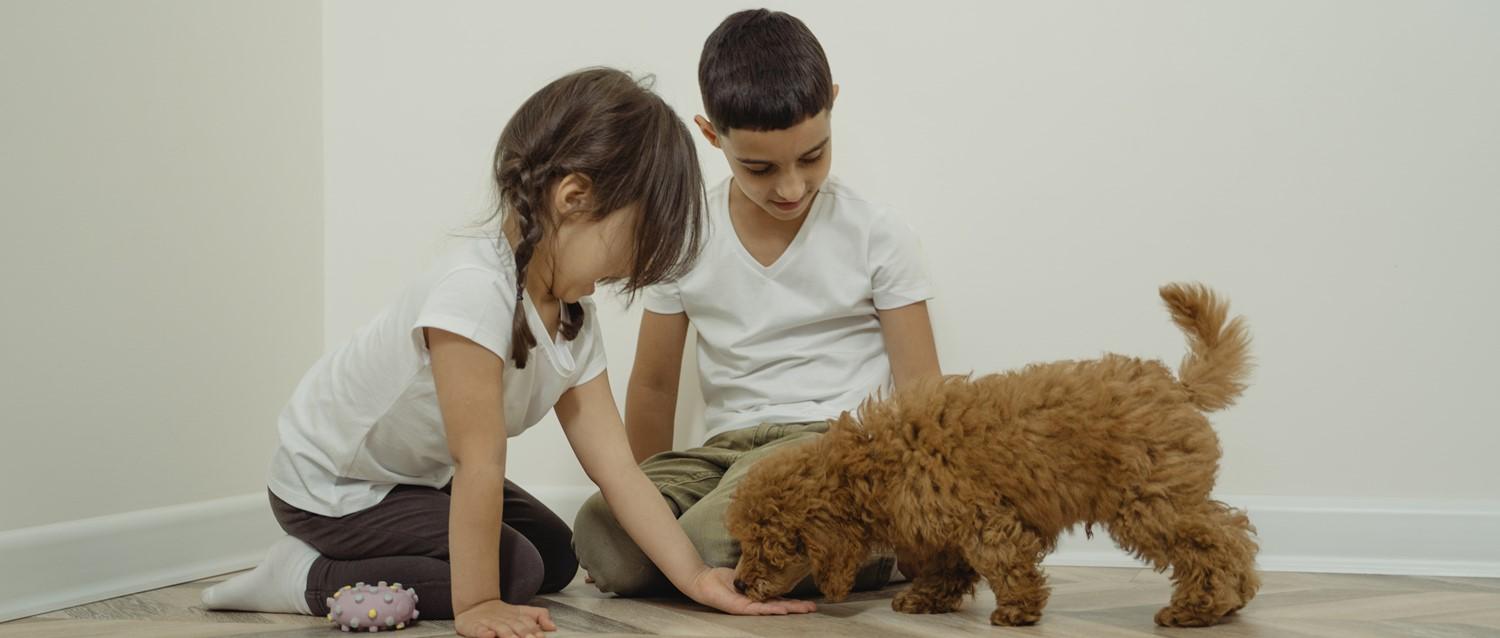
How to explain autism to your child
Peer reviewed by Dr Sarah Jarvis MBE, FRCGPLast updated by Emily Jane BashforthLast updated 3 Apr 2022
Meets Patient’s editorial guidelines
- DownloadDownload
- Share
- Language
- Discussion
The World Health Organization (WHO) says about 1 in 160 children has an autism spectrum disorder (ASD). These are a diverse group of conditions that are often detected during childhood, but not always diagnosed until adulthood. If your child is diagnosed as autistic, it can be difficult to figure out how to have this conversation with them, especially if they are young.
In this article:
Continue reading below
Should you tell your child they are autistic?
Rachel Morgan-Trimmer is a neurodiversity consultant. She has ADHD and grew up with undiagnosed autism. She explains that telling your child they are autistic can have long-term benefits, so early intervention could be life-changing.
"I meet many autistic people who didn't get their diagnosis until adulthood but wish they'd known when they were younger.
"Growing up not knowing you're autistic can be isolating and even traumatising. You can feel there's something wrong with you."
When should you tell your child they are autistic?
Back to contentsThe National Autistic Society says there isn't a "right time" to have a conversation with your child about autism. This is a decision you should make as a parent or guardian. You might want to discuss it with your child's school or specialist psychologist beforehand.
Morgan-Trimmer adds that it's important to be certain your child is autistic before telling them so.
"If you're an autistic parent, you'll probably spot the signs of autism early on. This might be the time to start talking about it. It doesn't need to be a big 'sit-down' conversation, but as part of a casual chat about how everyone's good at different things."
"If the knowledge that your child is autistic comes from elsewhere (sometimes schools spot the signs first, especially in the case of neurotypical parents), you'll probably have your own reaction to work through. In these cases, you and your child can explore it together, as they might have questions that you can't answer."
Continue reading below
How to tell your child they are autistic
Back to contentsThe National Autistic Society highlights the following areas to consider, stressing that there isn't one single way to tell your child they are autistic.
Are you the best person to tell them?
You should consider who else they are comfortable around. This might be a grandparent, an aunt, or a family friend who can help your child feel at ease. It can be extremely daunting for an adult to say, "We need to talk" without a child understanding what is happening.
Is the mood right?
Choose a moment when you are calm and your child is relaxed.
"Autistic children can find it difficult to process new information, especially if they're feeling anxious, stressed or are in an unfamiliar environment," adds the National Autistic Society.
Will you be interrupted?
Doing it over breakfast before rushing out the door to school and work is unlikely to be the best option. You should allow plenty of time and minimise the chance of distractions and interruptions. Your child will need time to process what you are saying.
What to say | What not to say |
Autistic adult/people/child | Has autism |
Person/child on the autistic spectrum | Person/child/adult with autism |
Is autistic | An autistic |
Has an autism diagnosis | Suffers from/is a victim of autism |
Disability or condition | Disease/illness |
Asperger syndrome is a form of autism | Asperger syndrome is a mild/rare form of autism |
Not autistic | Severe or mild |
Traits or characteristics | Normal |
How might your child react to their autism diagnosis?
Back to contentsIt cannot be predicted how your child will react. Some children might feel relieved to have a better understanding of who they are.
Others might be concerned that there is something wrong with them, or that their health is at risk. In these situations, The National Autistic Society says you should emphasise that autism is not a disease.
"Autism is a life-long condition but, with the right support, autistic people can thrive. It may be that your child needs additional support, such as a teaching assistant at school. You could point out that your child is good at things at school which other children need help with."
They add that the most important thing is to create space for your child to ask questions. Your child might have concerns they wish to raise but don't feel confident enough to do so. In this case, you could implement different systems that minimise their fear, such as a question box, letter writing or emails.
Continue reading below
How to support your autistic child in day-to-day life
Back to contentsMorgan-Trimmer emphasises the importance of research. She recommends taking full advantage of awareness weeks, such as Neurodiversity Celebration Week (March) and Autism Awareness Month (April), as there will be accessible information online.
"Understanding autism is the first step towards supporting your child. You can do this via webinars, panel discussions, charities, and books written by autistic authors," she says.
She suggests getting information from autistic adults, who are likely to have had similar experiences to their autistic child.
"As an autistic person, I can explain why a child is doing something when it's not obvious to someone else, or how to communicate with them."
Additionally, Morgan-Trimmer stresses that talking to your child about autism should be integrated into everyday conversations, as opposed to being one big conversation.
"Despite the term 'autistic spectrum disorder,' many people view autism as a difference, not a disorder. Therefore, talking about how they're good at something because they're autistic can be really valuable," she says.
However, autistic children can experience real struggles, so it's important to validate this.
How to explain autism to a sibling
Back to contentsIf you have another child who is not autistic, Morgan-Trimmer suggests taking the same, simplistic approach as with your autistic child. This means explaining what autism is, how it makes people behave differently, and the strengths and challenges experienced by autistic children.
She adds that a neurotypical sibling can feel sidelined if the autistic child needs a lot of attention, especially older children. You should remember that, although everyone's needs are different, they are of equal importance and need to be met.
How can parents care for themselves as they look after an autistic child?
Back to contentsWhen we talk about needs being met, we must include those of parents. Morgan-Trimmer says caring for an autistic child can be especially taxing for autistic parents and those with other neurodiverse conditions, such as ADHD.
"The more you understand and interact with your autistic child, the less demand there is on you. Once you know what triggers meltdowns, you can manage them. Being able to support them will make your connection stronger," she adds.
It's also a good idea to join online groups with other autistic adults. Having support and knowing you're not alone is crucial.
She says it is important to remember that autistic children are more than autism, so while it's important to take time out for yourself, you should also join in with their fun. This might involve playing games, accepting their affection or enjoying quiet time.
Real-life stories of parents with autistic children...
Back to contentsClaire and Elliot's story
Back to contentsClaire's son is currently 19-years-old and he was diagnosed at the age of 11.
They went to their GP to say they felt Elliot was different and was possibly autistic. The family were referred to Child and Adolescent Mental Health Services (CAMHS).
The way we talk about autism
Claire thinks it helped that her son knew when he was young. She says her household is very relaxed, so Elliot had a safe space and didn't feel much different following his diagnosis.
As he approaches 20, Claire says Elliot "doesn't really care" about being autistic because it "doesn't change who he is."
"He didn't have many questions following his diagnosis, as we've always been honest about the fact that he is different, and we viewed it as a positive."
She likes to reinforce the positives about Elliot. She has explained that, just as people in wheelchairs need adjustments, it's normal for autistic people to need them too.
Advice to other parents
Claire stresses that you know your child best.
"Do what's right for you and your family. That might not be the same as someone else's family, but there's no right or wrong."
Claire adds that an increased understanding of autism can open doors for children's development, improving their education and employment opportunities.
"We continue to face obstacles with my other son's school. He is also autistic but there has been a lack of support for children on the spectrum.
"It's the same in the workplace. More education would dismantle obstacles and small adjustments could encourage autistic people into jobs."
Rebecca and Oliver's story
Back to contentsOliver had just turned nine when diagnosed. Rebecca and her partner felt there was something different about him, but couldn't put their fingers on it.
"In retrospect, he absorbed the idea that his autistic traits were 'bad' and, in order to be 'good,' he had to mask them. During lockdown, he was unable to cope with things you would expect a child of his age to manage and we felt our parenting wasn't working. We got an appointment for an assessment and Oliver was later diagnosed with autism level one."
A new way of parenting
Oliver had never heard of autism until his diagnosis. Therefore, his parents tried to educate themselves before speaking to him. Oliver was initially reluctant to discuss his diagnosis in any way. He was terrified, so his parents tried to be as patient as possible.
"Very slowly, he started to talk about it and we established a dialogue. It was a huge learning curve and we had to work out a new way of parenting. It was exhausting, stressful and upsetting, but gradually we reached a more positive place," says Rebecca.
The power of support
As Oliver started to understand his diagnosis, he became more confident.
"He went from being terrified of anyone knowing to speaking openly about it with new people. He now sees being autistic as part of his identity and he has monthly sessions with his psychologist."
She adds that patience has been crucial since the experience hasn't been easy.
"It took a long time to find safe spaces for Oliver and I felt disheartened at first, but it's definitely worth persevering because they make all the difference to him and us. It's often very hard as a family, so you have to find those moments of respite to get you through.
"The best advice we were given by Oliver's psychologist was to be kind to ourselves. No one can get this right all the time."
Patient picks for Autism spectrum disorders

Brain and nerves
How should we support children with autism?
Around 700,000 people in the UK - more than 1 in 100 - are autistic. We consult a pair of experts to find out how children with autism communicate and interact with the world, and how, with the right emotional and educational support, parents can help them fulfil their social and academic potential.
by Julian Turner

Brain and nerves
How can dogs help support families with autistic children?
Owning a pet can offer a multitude of well-being benefits, especially for families with autistic children. For example, research from the University of Lincoln found that autistic children experience fewer meltdowns in the presence of a pet dog, with their parents' stress levels also being significantly lowered.
by Emily Jane Bashforth
Continue reading below
Article history
The information on this page is peer reviewed by qualified clinicians.
3 Apr 2022 | Latest version
3 Apr 2022 | Originally published

Ask, share, connect.
Browse discussions, ask questions, and share experiences across hundreds of health topics.

Feeling unwell?
Assess your symptoms online for free
Sign up to the Patient newsletter
Your weekly dose of clear, trustworthy health advice - written to help you feel informed, confident and in control.
By subscribing you accept our Privacy Policy. You can unsubscribe at any time. We never sell your data.